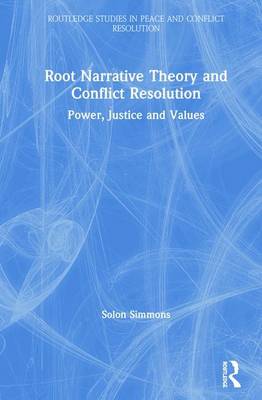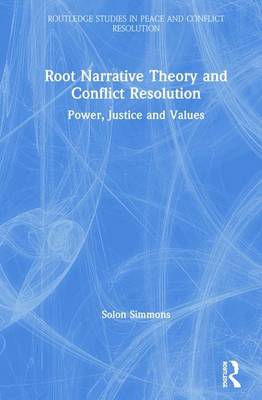
- Retrait gratuit dans votre magasin Club
- 7.000.000 titres dans notre catalogue
- Payer en toute sécurité
- Toujours un magasin près de chez vous
- Retrait gratuit dans votre magasin Club
- 7.000.000 titres dans notre catalogue
- Payer en toute sécurité
- Toujours un magasin près de chez vous
Description
This book introduces Root Narrative Theory, a new approach for narrative analysis, decoding moral politics, and for building respect and understanding in conditions of radical disagreement.
This theory of moral politics bridges emotion and reason, and, rather than relying on what people say, it helps both the analyst and the practitioner to focus on what people mean in a language that parties to the conflict understand. Based on a simple idea-the legacy effects of abuses of power-the book argues that conflicts only endure and escalate where there is a clash of interpretations about the history of institutional power. Providing theoretically complex but easy-to-use tools, this book offers a completely new way to think about storytelling, the effects of abusive power on interpretation, the relationship between power and conceptions of justice, and the origins and substance of ultimate values. By locating the source of radical disagreement in story structures and political history rather than in biological or cognitive systems, Root Narrative Theory bridges the divides between reason and emotion, realism and idealism, without losing sight of the inescapable human element at work in the world's most devastating conflicts.
This book will be of much interest to students of conflict resolution, peace studies and International Relations, as well as to practitioners of conflict resolution.
Spécifications
Parties prenantes
- Auteur(s) :
- Editeur:
Contenu
- Nombre de pages :
- 226
- Langue:
- Anglais
- Collection :
Caractéristiques
- EAN:
- 9780367422073
- Date de parution :
- 12-02-20
- Format:
- Livre relié
- Format numérique:
- Genaaid
- Dimensions :
- 156 mm x 234 mm
- Poids :
- 512 g







